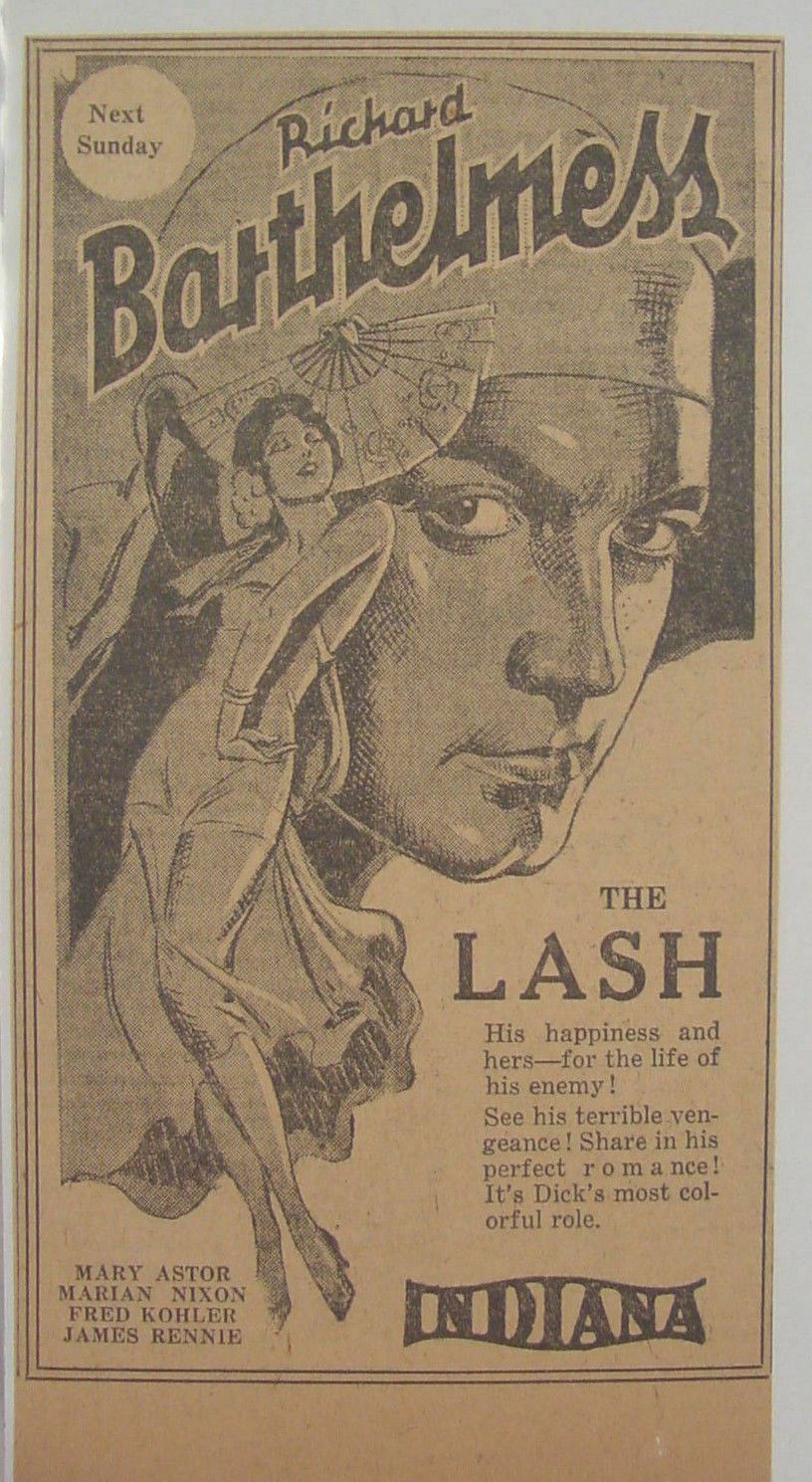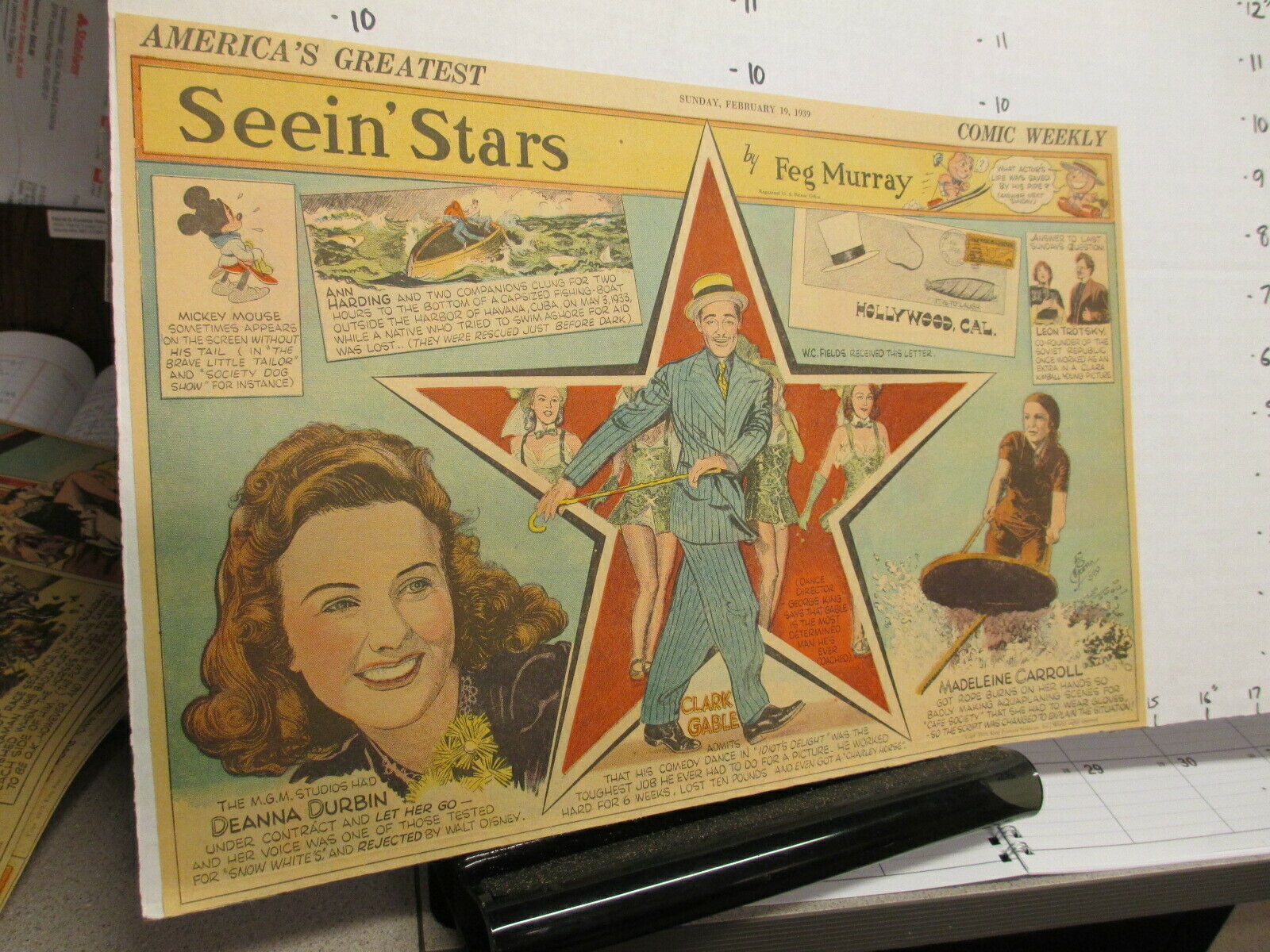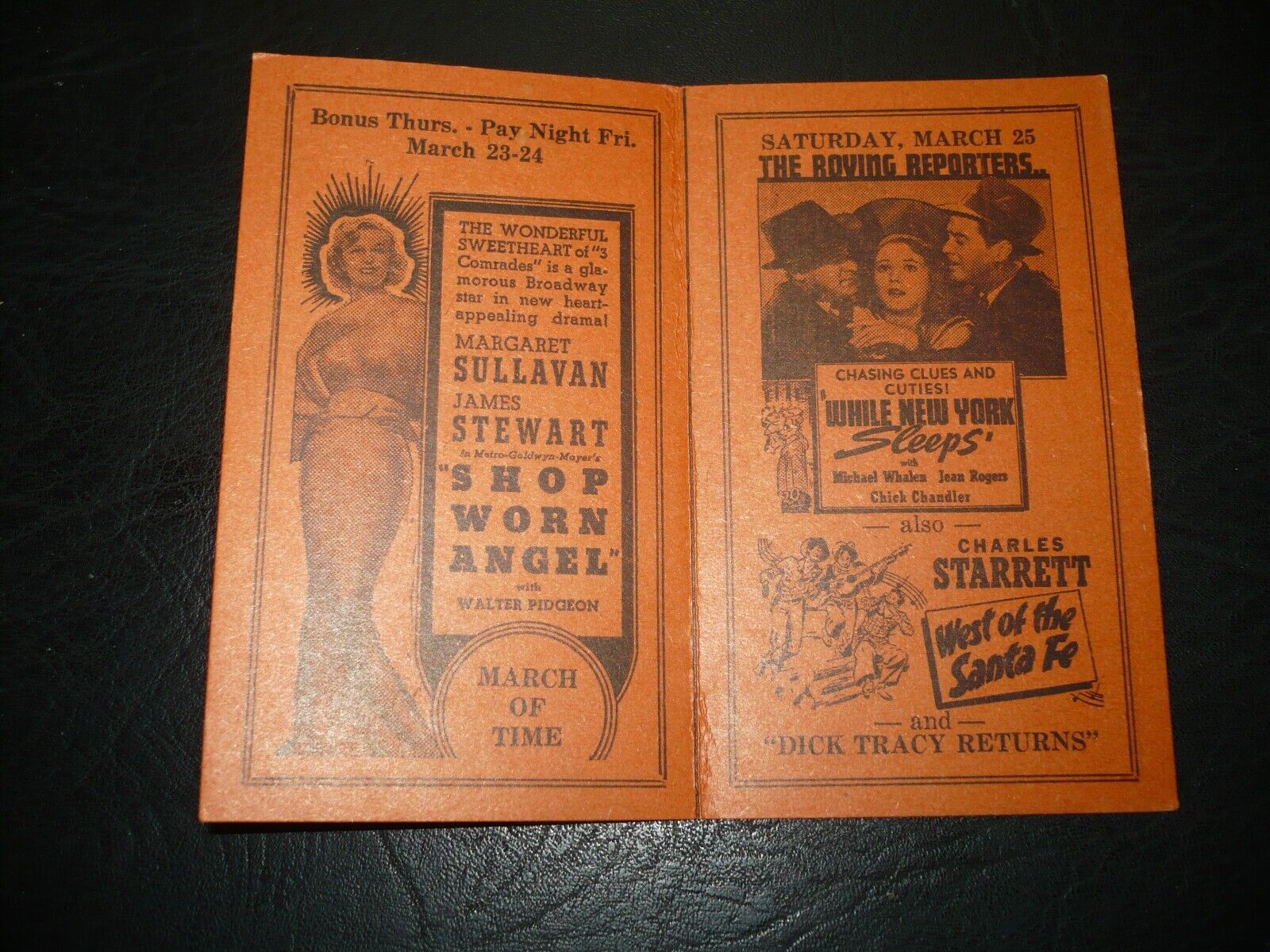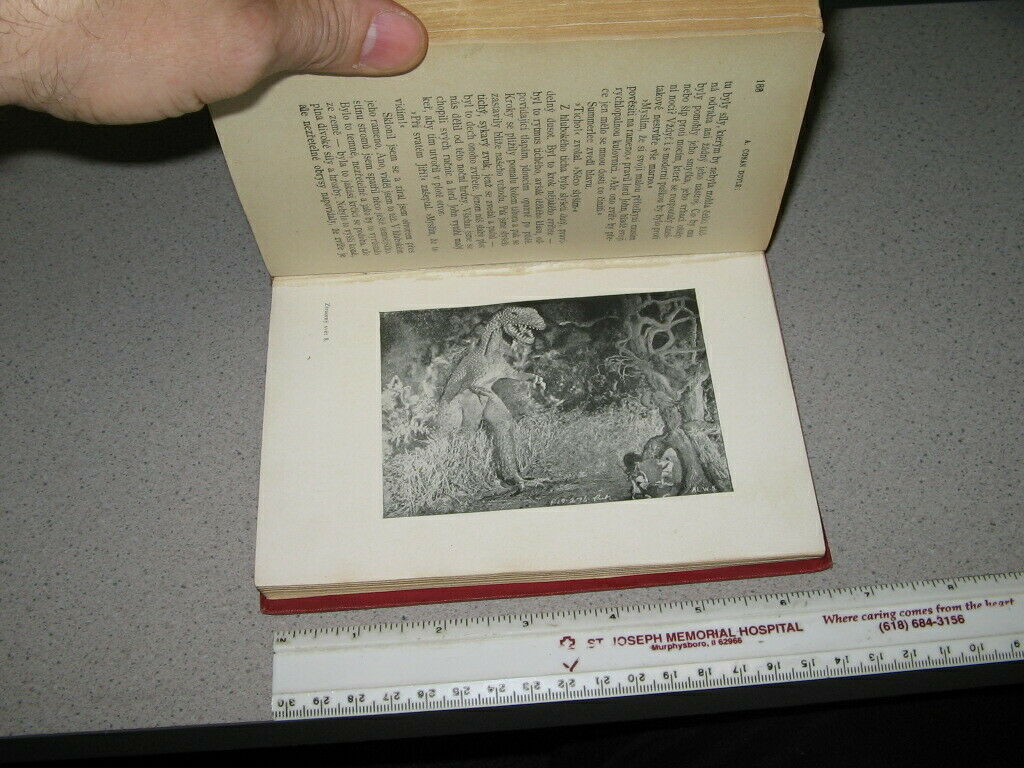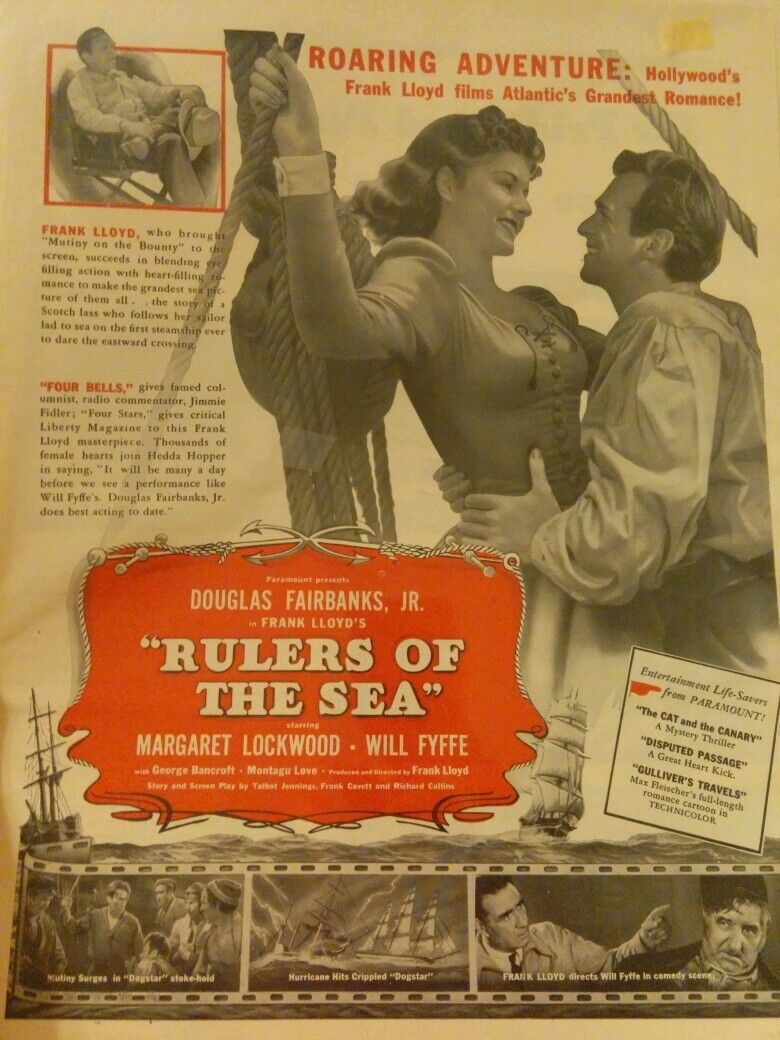-40%
EMIL JANNINGS - EVELYN BRENT "THE LAST COMMAND" 1929 MOVIE HERALD
$ 26.39
- Description
- Size Guide
Description
Original Herald from Uruguay and Argentina in South America. This kind of gorgeous heralds are quite scarce, they were printed by a local distributor (Max Glücksmann) just during a short period of time between the late 1920's and the late 1930's. Usually printed on both sides, in full color or in duotone inks featuring Art Deco style, they show great graphics from the films advertised. Most advertise a single feature movie, while a few examples advertise double movie programs.Local Title: LA ULTIMA ORDEN
Original Title: THE LAST COMMAND
Year / Country: 1928 - USA
Company: Paramount Pictures
Director: Josef von Sternberg
Starring: Emil Jannings, Evelyn Brent, William Powell
Size (unfolded): 256 mm x 170 mm
Condition: Excellent
Ref # C-9
Herald advertises this film as shown in Uruguay. Program is undated, but most securely from 1929.
Comments:
The Last Command is a 1928 silent film directed by Josef von Sternberg, and written by John F. Goodrich and Herman J. Mankiewicz from a story by Lajos Bíró. Star Emil Jannings won the first Academy Award for Best Actor in a Leading Role at the 1929 ceremony for his performances in this film and The Way of All Flesh, the only year that multiple roles were considered. In 2006, the film was deemed "culturally, historically, or aesthetically significant" by the United States Library of Congress and selected for the National Film Registry. The supporting cast includes Evelyn Brent and William Powell.
Plot:
In 1928 Hollywood, director Leo Andreyev (William Powell) looks through photographs for actors for his next movie. When he comes to the picture of an aged Sergius Alexander (Emil Jannings), he pauses, then tells his assistant (Jack Raymond) to cast the man. Sergius shows up at the Eureka Studio with a horde of other extras and is issued a general's uniform. As he is dressing, another actor complains that his continual head twitching is distracting. Sergius apologizes and explains that it is the result of a great shock he once experienced.
The film then flashes back ten years to Czarist Russia, which is in the midst of the Revolution. Grand Duke Sergius Alexander, the Czar's cousin and commander of all his armies, is informed by his adjutant that two actors entertaining the troops have been identified as dangerous "revolutionists" during a routine passport check. He decides to toy with them for his amusement. When one of them, Leo Andreyev, becomes insolent, Sergius whips him across the face and has him jailed.
Leo's companion, the beautiful Natalie Dabrova (Evelyn Brent), is an entirely different matter. She intrigues Sergius. Despite the danger she poses, he takes her along with him. After a week, he gives her a pearl necklace as a token of his feelings for her. She comes to realize that he is at heart a man of great honor who loves Russia as deeply as she does. When she invites him to her room, he spots a partially hidden pistol, but deliberately turns his back to her. She draws the weapon, but cannot fire. Despite their political differences, she has fallen in love with him.
When the Bolsheviks capture the train on which they are traveling, she pretends to despise him. Instead of having him shot out of hand like his officers, she suggests they have him stoke coal into the locomotive all the way to Petrograd, where he will be publicly hanged. This however is a ruse to keep him alive and, when everyone on board is drunk, she helps him escape, giving him back the pearl necklace to finance his way out of the country. Sergius jumps from the train, then watches in horror as it tumbles off a nearby bridge into the icy river below, taking Natalie with it. This moment is when Sergius develops his head twitch.
Ten years later, Sergius is reduced to poverty, eking out a living as a Hollywood extra. When he and the director finally meet, Sergius recognizes him. Leo, in an ironic act calculated to humiliate him, casts him as a Russian general in a battle scene. He is directed to give a speech to a group of actors playing his dispirited men. When one soldier tries to incite a mutiny, telling the general that "you've given your last command", he whips the man in the face as instructed, just as he had once struck Leo. Losing his grip on reality, he imagines himself genuinely on the battlefield, besieged by enemies, and passionately urges his men to fight for Russia. Overstraining himself, he dies, inquiring with his last words if they have won. Moved, Leo tells him they have. The assistant remarks, "That guy was a great actor." Leo replies, "He was more than a great actor - he was a great man."
Shipping via FedEx for 1 up to 20 similar items: US$ 15 to USA, CANADA and Americas, US$ 20 to EUROPE and US$ 25 to the rest of the World


